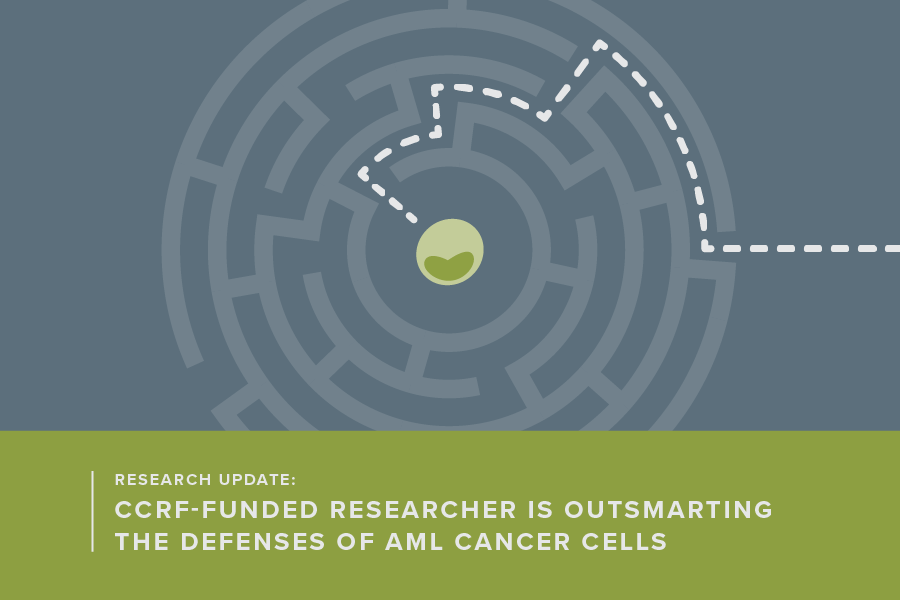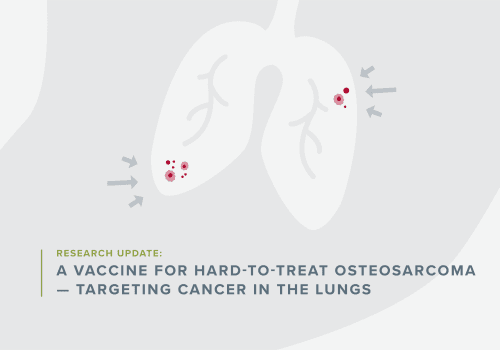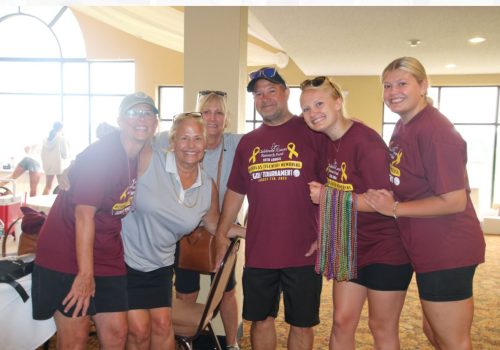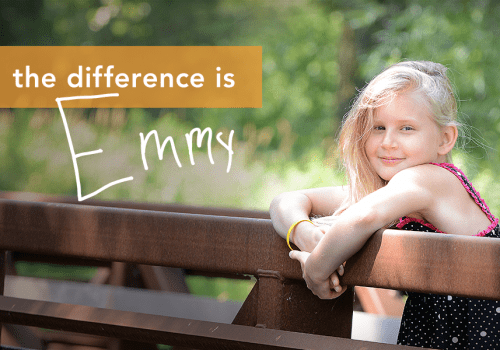Shannon Conneely, MD, a pediatric hematologist-oncologist at Texas Children’s Hospital and researcher at Baylor College of Medicine, envisions cancer treatment like a maze with multiple exits. As chemotherapy drugs chase down the cancer cells, the craftiest of cells manage to find a back door out. Sometimes cancer cells temporarily stop dividing and grow “quiet” during treatment — only to return with a vengeance later.
Conneely’s goal: to seal off the exits and get past cancer cells’ defensive maneuvers. With support from an Emerging Scientist Award from Children’s Cancer Research Fund (CCRF), she’s studying genetic changes in treatment-resistant acute myeloid leukemia (AML).
“All cells can use different mechanisms to escape the effects of chemotherapy. It’s just a matter of how they get there,” Conneely said. “It’s one of the things that we probably don’t look at often enough, how cancer cells are evading the effects of our treatment. We’re trying to figure out how the cancer army is working and how different elements are working together to prevent our attack so we can then choose a different method that gets around their defenses. It’s a new opportunity that hopefully would allow us to decrease the toxicity of our treatments.”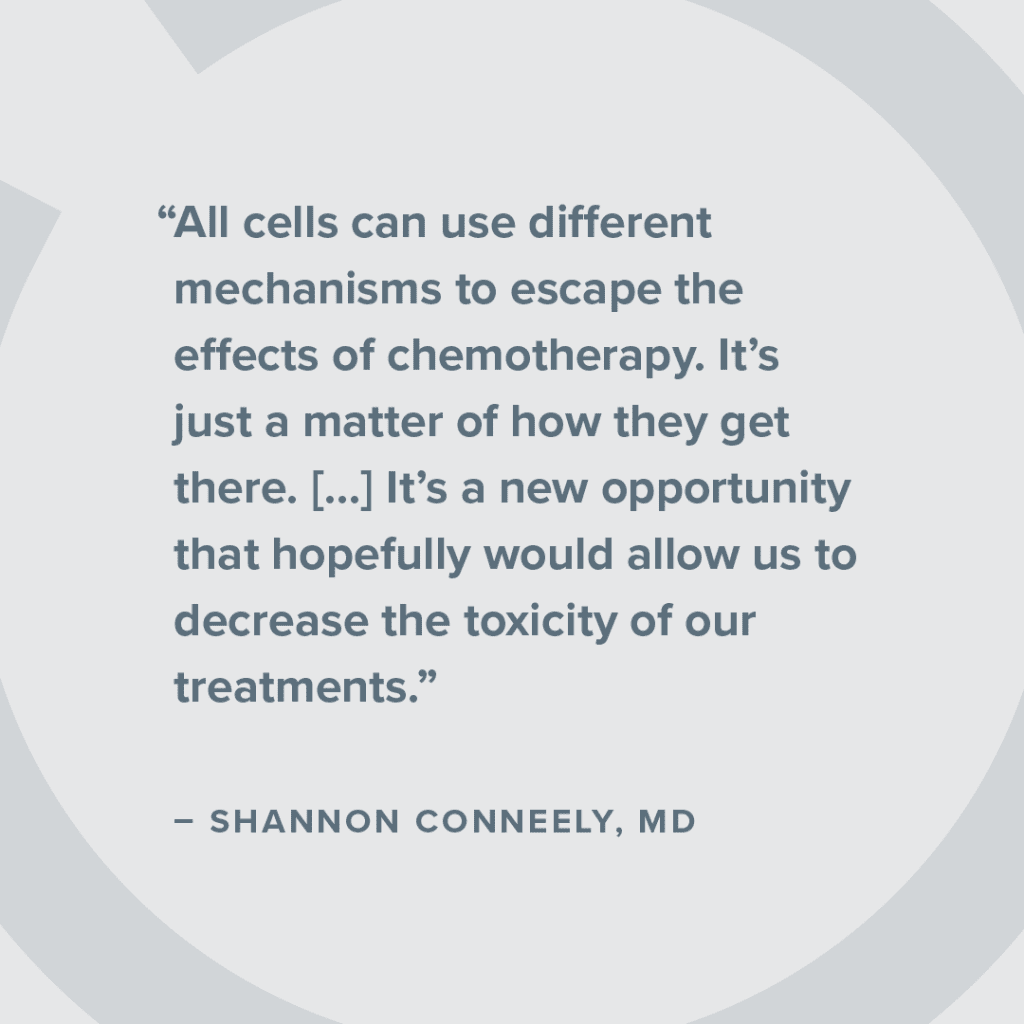
And new opportunities are definitely needed for AML. While outcomes for the disease have improved over time to a 5-year survival rate of 70%, half of kids have their cancer come back or are never able to get rid of in the first place.
“AML is much harder to cure,” Conneely noted. “The kids with AML basically stay in the hospital for months at a time. They’re the kids who get the most intensive therapy that we can give. But at the same time, we’re not great at giving them a long-term cure. I really feel like these kids go through so much, and we’re still not able to give them the life that they deserve.”
But Conneely believes that hope lies in understanding the genetic makeup of a child’s cancer. “Our goal is to figure out how these specific genetic changes help the cells avoid death when given chemotherapy,” she explained. “Specifically, we are looking at how mutations in two different groups of genes, called cohesin genes and RUNX1-RUNX1T1, work together to prevent cell death. We believe that by understanding how these mutations work together, we can then find ways to shut them down and improve cure rates for this deadly disease.”
Cohesin genes are mutated in about 20% of children who have what’s known as core-binding factor AML. “What we’ve seen in some studies is that if a kid has both core-binding factor AML and a mutation in a cohesin gene, they’re more likely to have their cancer come back. They’re most resistant to therapy for some reason, but the actual role of those genes within those cancer cells has not been determined,” she said. “Our goal is to be able to look at the DNA of cancer cells of any patient and say, ‘This is what your best therapy is going to be based on the combination of errors that we find.’ That would be the ideal. No two kids are treated the same because in reality, no two kids are the same in terms of what their cancer looks and acts like.”
Conneely’s research could also have applications beyond AML. “Cohesin genes are mutated in other types of pediatric cancer as well, and so I think looking at cohesin in AML can probably teach us about how those genes might be important in other types of cancers that we treat,” she said.
She’s grateful for the support of CCRF, which she called “essential” to sustaining her work as an early-career investigator. That support has been even more critical during the COVID-19 pandemic, when the budgets of many other grant-giving organizations have been strained. “Without the support of Children’s Cancer Research Fund, I can’t say that I would be able to be in the lab doing this work,” she said.
When she’s not in the lab, she’s caring for patients whose lives depend on pediatric cancer research. Conneely said she hopes that CCRF’s donors understand just how much their support matters. “Their donations and support of childhood cancer research is very much valued, not just by me, but by the families and the kids who are going through this,” she said. “It’s all for them. I appreciate the investment in me, but it’s really an investment in the future of children who get diagnosed with cancer. It’s so valuable.”
Kids Deserve Better, Safer Treatments
We believe kids fighting cancer deserve treatments that both eradicate their cancer and allow them to live full, healthy lives. Your support is crucial to finding safer, more effective therapies for kids battling cancer.

